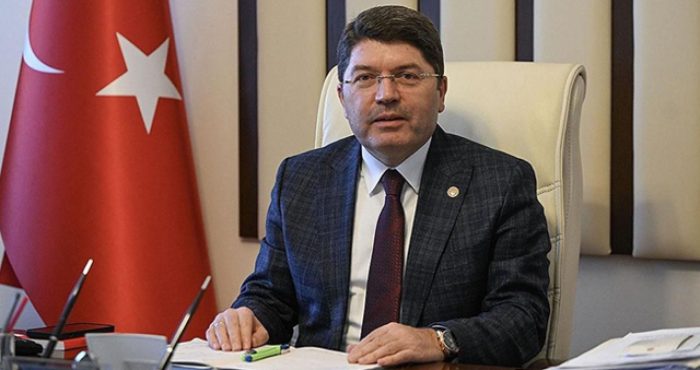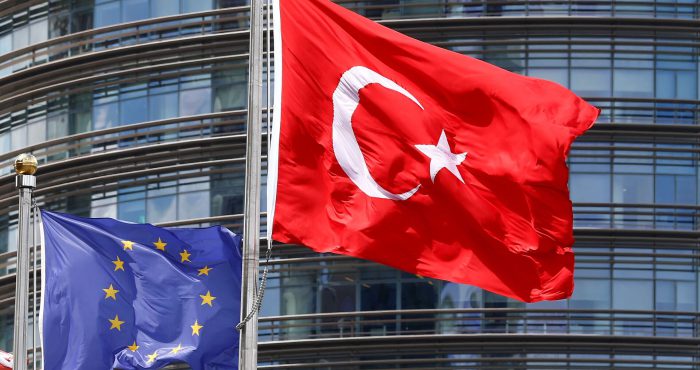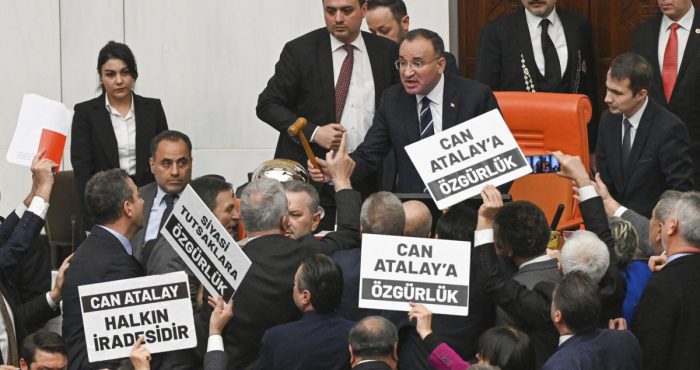Republican People’s Party (CHP) president Kemal Kılıçdaroğlu’s proposal for a law on the hijab quickly led to a political consensus when President Recep Tayyip Erdoğan said, “the law is not enough, let’s change the constitution.” Justice Minister Bekir Bozdağ stated that the draft constitutional amendment, which was prepared in just one day, would be submitted to the president. In a race to win the votes of the masses, a shallow and vague amendment in response to this deep-rooted problem, caused by the path of rigid secularist mentality taken under the Justice and Development Party (AKP) government, is being brought to the table in a manner and at a pace that are incompatible with the spirit of constitution-making.
The hijab ban is being played out without any consensus on which provision of the Constitution it complies with or violates; whether it is in line with freedom of belief, secularism, equality before the law, the rule of law and other fundamental rights and freedoms; or whether it violates or complies with the constitutional, administrative and legal mentality of those who govern the state and hold the tutelage. I do not think that this shallow consensus will result in a constitutional amendment, nor do I wish the country’s efforts to be squandered on this artificial issue at these critical times.
The problem is not the hijab but arbitrary law
Just recently, an artist was murdered because three civil servants whose monthly salaries were barely enough to pay a bill could not play the song they wanted during their leisure time. Senior public officials who neglected their duties in the Soma mine disaster and caused 301 workers to suffocate underground have not yet been brought to justice. In the Pamukova train disaster, the senior executives and the minister who gave illegal instructions to the engine driver, causing the loss of dozens of lives and millions of dollars of public property, were never even investigated. The statute of limitations has expired, and high-ranking public officials, whom politicians have refused to allow the judiciary to investigate, have escaped punishment for their crimes for the rest of their lives, without even having to stand trial. In the Çorlu train accident in 2018, the trial was postponed repeatedly, the first arrest was made only four years later, and Mısra Öz Sel, who lost her beloved son in the accident, complains that the people who are really responsible are not being put on trial. Claiming that they the judges who tried to do the right thing in this case were “transferred” is an understatement: many judges were exiled to other cities because of their decisions—most recently the judge in Karaburun who arrested a man who had bullied witnesses—and the court has been exiled elsewhere.
The lawyer whose loyalty outweighs their merit
The deputy of the interior minister, who could be described as the state’s police force, has been elected as a member of the Constitutional Court. More than 16,000 new appointments have been made to the ranks of judges and prosecutors, the number of whom had fallen to around 6,000 after the coup attempt on July 15, 2016, with another 1,500 appointments announced for the near future. We are all hearing those with the highest scores in the written exams are unfairly and unjustly eliminated in interviews conducted by the Ministry of Justice of which there is no record and over which there is no judicial control.
The minister of justice, a representative of the ruling political party and a pure politician, and the president, who is responsible for the appointment, are the sole decision-makers on the acceptance of individuals to the profession. In addition, the minister of justice, who also acts in the capacity of the head of the Council of Judges and Prosecutors (HSK), decides who will be assigned to which court with “permanent authority” appointments. The same HSK decides on the promotion and transfer of about a third of all judges and prosecutors every year. It is inevitable that there will be hundreds of mistakes among tens of thousands of decisions, yet the minister’s decisions are entirely immune to judicial control.
Bureaucracy has become a gatekeeper
Law No. 3826, which could accurately be called the “Law on Failure to Combat the Corruption and Bribery of Senior Public Officials and Politicians who are their Superiors”, and Law No. 4483, which could be called the “Law on Removing Members of the Judiciary Whom Politicians Do Not Want and Keeping Those They Want”, condemn our bureaucracy.
Politicians can help those who have committed crimes to evade the judiciary, while dragging the innocent through the courts unjustly. The judiciary, whose hands are already tied by the politicians in power, is now bound by the words of politicians to perform its normal function against government employees, and the bureaucracy, deprived of the guarantee of the law and the judiciary, is no longer the guarantor of stability in the state.
It is impossible for the bureaucracy to resist or even dare to oppose the illegal requests and instructions of politicians. The bureaucracy has to bow to the wishes of its superiors, those pulling the strings in the judiciary, by saying “Yes, sir.” This is why the Central Bank, the institution in Turkey that is most independent from the government, has openly violated its duty to protect the value of our currency by lowering interest rates in line with the president’s wishes and expectations, and why the BDDK (BRSA, Banking Regulation and Supervision Agency) has adopted similar practices.
The judiciary is the top priority
Almost everyone now knows that the “Turkish-style” presidential system has major flaws and shortcomings. In closed circles, some reasonable people in the president’s circle and the business world criticize it, complaining that it causes more harm than good. There are complaints that the system, which was hastily created in a state of emergency without adequate discussion, without evaluating the possible consequences, benefits, harms, opportunities and threats, does not work effectively; wastes the country’s energy, know-how and resources; and causes delays and inaccuracies in administrative decisions and regression in governance.
On the other hand, the Nation Alliance’s proposal for a “Strengthened Parliamentary System” (GPS) has many aspects in need of improvement, most notably the judiciary. Glimpses of hope—the product of rumors that the People’s Alliance and Nation Alliance were negotiating a compromise on this issue before the pandemic—have long since given way to pessimism. Even the declaration that the red line of the People’s Alliance is the election of the prime minister or the president by the people is an eye-opener regarding what a possible compromise could bring along with it.
Compromise for a civil constitution, not for the hijab
What Turkey needs is not a small change on the headscarf issue, but a civilian constitution that is progressive, libertarian and above the rule of law: a grand compromise regarding the ideas and demands put forward by the two alliances that will make the judiciary—which they have never touched upon—effective and efficient, producing quality services, transparent, compliant with the rule of law and fully independent.
Such a reconciliation would reveal Turkey’s true dynamics, transform it into the prosperous and advanced democracy that it deserves to be, and solve artificial problems such as that surrounding the hijab and other issues.




